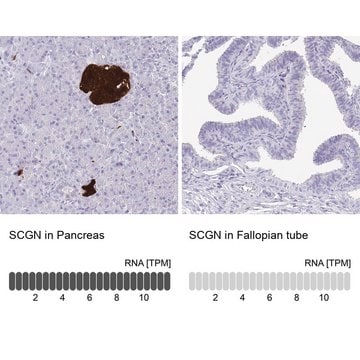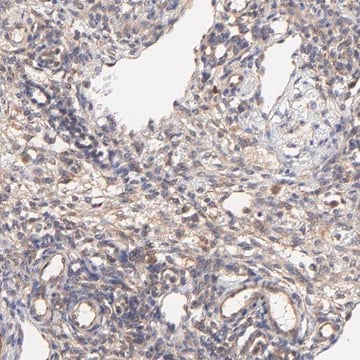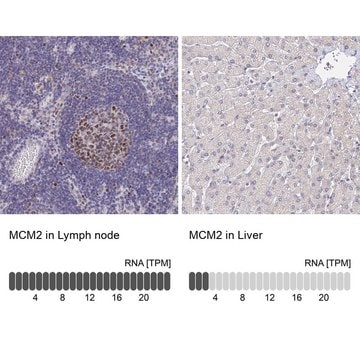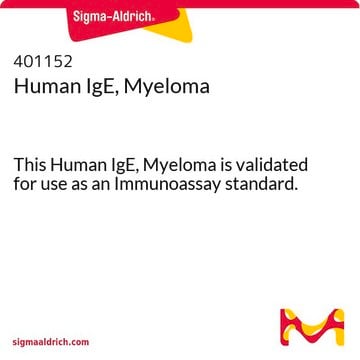推荐产品
生物源
rabbit
共軛
unconjugated
抗體表格
affinity isolated antibody
抗體產品種類
primary antibodies
無性繁殖
polyclonal
產品線
Prestige Antibodies® Powered by Atlas Antibodies
形狀
buffered aqueous glycerol solution
物種活性
mouse, rat, human
加強驗證
orthogonal RNAseq
Learn more about Antibody Enhanced Validation
技術
immunoblotting: 0.04-0.4 μg/mL
immunohistochemistry: 1:50-1:200
免疫原序列
GEERLETPSAKKLTDIGIRRIFSPEHDIFRKSVRKFFQEEVIPHHSEWEKAGEVSREVWEKAGKQGLLGVNIAEHLGGIGGDLYSAAIVWEEQAYSNCSGPGFSIHSGIVMSYITNHGSEEQIKHFIPQMT
UniProt登錄號
運輸包裝
wet ice
儲存溫度
−20°C
目標翻譯後修改
unmodified
基因資訊
human ... ACADL(33)
免疫原
Long-chain specific acyl-CoA dehydrogenase, mitochondrial precursor recombinant protein epitope signature tag (PrEST)
應用
All Prestige Antibodies Powered by Atlas Antibodies are developed and validated by the Human Protein Atlas (HPA) project and as a result, are supported by the most extensive characterization in the industry.
The Human Protein Atlas project can be subdivided into three efforts: Human Tissue Atlas, Cancer Atlas, and Human Cell Atlas. The antibodies that have been generated in support of the Tissue and Cancer Atlas projects have been tested by immunohistochemistry against hundreds of normal and disease tissues and through the recent efforts of the Human Cell Atlas project, many have been characterized by immunofluorescence to map the human proteome not only at the tissue level but now at the subcellular level. These images and the collection of this vast data set can be viewed on the Human Protein Atlas (HPA) site by clicking on the Image Gallery link. We also provide Prestige Antibodies® protocols and other useful information.
The Human Protein Atlas project can be subdivided into three efforts: Human Tissue Atlas, Cancer Atlas, and Human Cell Atlas. The antibodies that have been generated in support of the Tissue and Cancer Atlas projects have been tested by immunohistochemistry against hundreds of normal and disease tissues and through the recent efforts of the Human Cell Atlas project, many have been characterized by immunofluorescence to map the human proteome not only at the tissue level but now at the subcellular level. These images and the collection of this vast data set can be viewed on the Human Protein Atlas (HPA) site by clicking on the Image Gallery link. We also provide Prestige Antibodies® protocols and other useful information.
生化/生理作用
ACADL (Acyl-CoA dehydrogenase, long chain) is a mitochondrial flavoenzyme. It is highly expressed in human skeletal muscles and to a lesser extent in liver, fibroblast and heart tissues. It is involved in the first stage of branched long-chain fatty acid (LCFA) β-oxidation. During fatty acid β-oxidation, it interacts with 2,6-dimethylheptanoyl-CoA and catalyzes the degradation of double-bonded unsaturated fatty acid chain in the mitochondria. Mutation in ACADL causes deficiency of VLCAD (very long chain acyl-CoA dehydrogenase) and MCAD (Medium chain acyl-CoA dehydrogenase) with disrupted muscle function, myopathy, and cardiomyopathy.
特點和優勢
Prestige Antibodies® are highly characterized and extensively validated antibodies with the added benefit of all available characterization data for each target being accessible via the Human Protein Atlas portal linked just below the product name at the top of this page. The uniqueness and low cross-reactivity of the Prestige Antibodies® to other proteins are due to a thorough selection of antigen regions, affinity purification, and stringent selection. Prestige antigen controls are available for every corresponding Prestige Antibody and can be found in the linkage section.
Every Prestige Antibody is tested in the following ways:
Every Prestige Antibody is tested in the following ways:
- IHC tissue array of 44 normal human tissues and 20 of the most common cancer type tissues.
- Protein array of 364 human recombinant protein fragments.
聯結
Corresponding Antigen APREST70470
外觀
Solution in phosphate-buffered saline, pH 7.2, containing 40% glycerol and 0.02% sodium azide
法律資訊
Prestige Antibodies is a registered trademark of Merck KGaA, Darmstadt, Germany
免責聲明
Unless otherwise stated in our catalog or other company documentation accompanying the product(s), our products are intended for research use only and are not to be used for any other purpose, which includes but is not limited to, unauthorized commercial uses, in vitro diagnostic uses, ex vivo or in vivo therapeutic uses or any type of consumption or application to humans or animals.
Not finding the right product?
Try our 产品选型工具.
儲存類別代碼
10 - Combustible liquids
水污染物質分類(WGK)
WGK 1
閃點(°F)
Not applicable
閃點(°C)
Not applicable
個人防護裝備
Eyeshields, Gloves, multi-purpose combination respirator cartridge (US)
Kegong Chen et al.
Cancer cell international, 24(1), 86-86 (2024-02-25)
The role of Acyl-CoA dehydrogenase long chain (ACADL) in different tumor types had different inhibiting or promoting effect. However, its role in non-small cell lung cancer (NSCLC) carcinogenicity is not clear. In this study, we utilized The Cancer Genome Atlas
Xiaofang Zhao et al.
NPJ precision oncology, 4, 7-7 (2020-03-29)
Long-chain acyl-CoA dehydrogenase (ACADL) is a mitochondrial enzyme that catalyzes the initial step of fatty acid oxidation, but the role of ACADL in tumor biology remains largely unknown. Here, we found that ACADL was frequently downregulated in hepatocellular carcinoma (HCC)
W Lea et al.
Biochimica et biophysica acta, 1485(2-3), 121-128 (2000-06-01)
The first reaction of mitochondrial beta-oxidation, which is catalyzed by acyl-CoA dehydrogenases, was studied with unsaturated fatty acids that have a double bond either at the 4,5 or 5,6 position. The CoA thioesters of docosahexaenoic acid, arachidonic acid, 4,7,10-cis-hexadecatrienoic acid
Amy C Maher et al.
Molecular genetics and metabolism, 100(2), 163-167 (2010-04-07)
Long-chain acyl-CoA dehydrogenase (LCAD) is a mitochondrial flavoenzyme thought to be one of the major enzymes responsible for the first step of long-chain fatty acid (LCFA) beta-oxidation. Surprisingly, recent studies have shown LCAD is hardly detectable in human tissues such
Validating MCM2 as a clinically relevant surrogate immunohistochemical marker for an aggressive meningioma molecular subtype.
Allison Shelbourn et al.
Journal of neuropathology and experimental neurology, 82(12), 1037-1039 (2023-10-15)
我们的科学家团队拥有各种研究领域经验,包括生命科学、材料科学、化学合成、色谱、分析及许多其他领域.
联系技术服务部门
